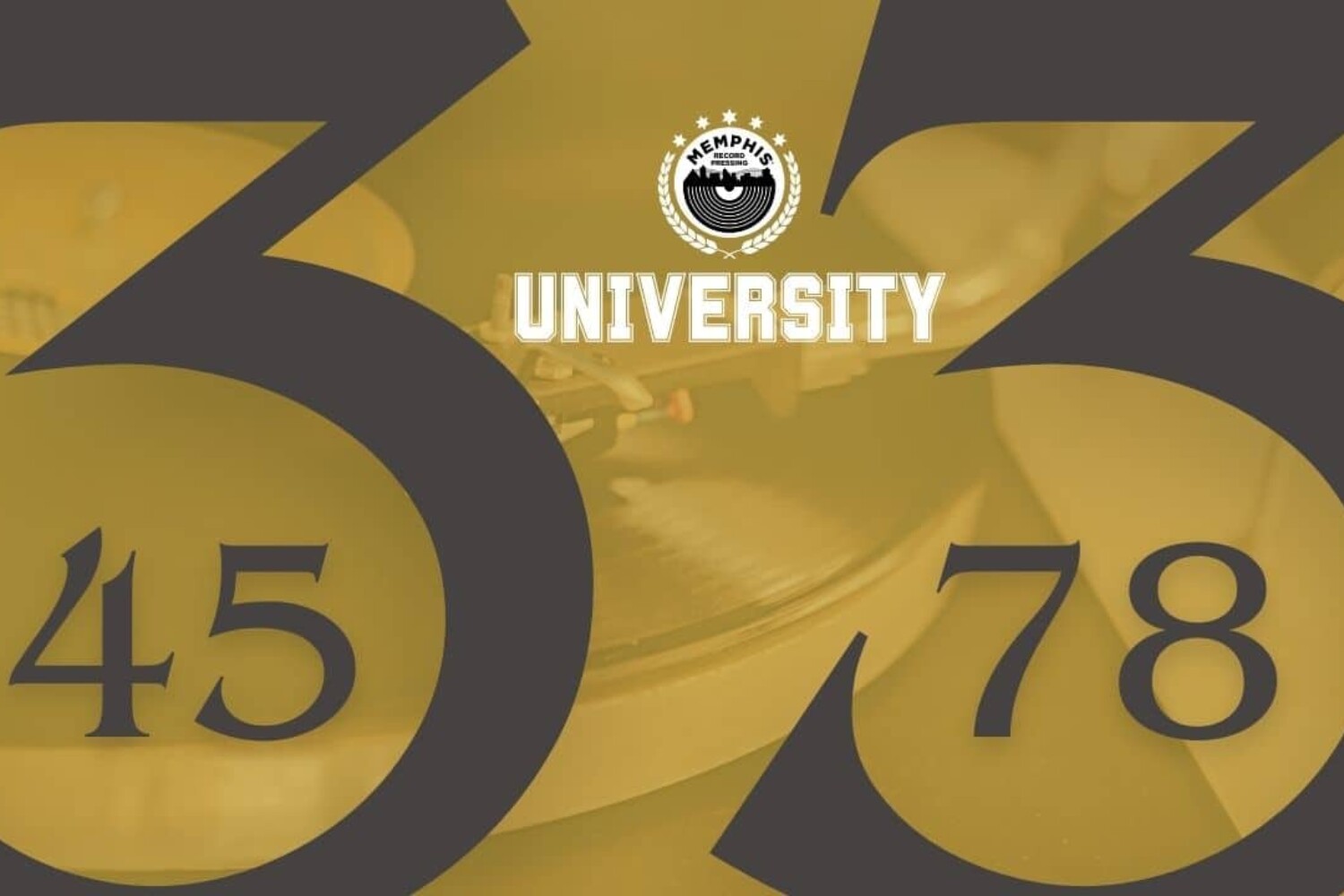If you’ve ever browsed through a record collection or visited a vinyl shop, you’ve probably seen labels like 33, 45, or even 78 RPM. But what do these numbers mean — and why should you care? At MRP University, we’re breaking down the differences so you can enjoy your vinyl the way it was meant to be played.
What Does RPM Mean?
RPM stands for ‘revolutions per minute.’ It’s the speed at which a record spins on your turntable. The speed determines not only how fast the record plays but also how much audio can be stored and how the grooves are cut. Choosing the correct RPM is essential for accurate playback.
33 ⅓ RPM Records
Format: Long Play (LP)
Typical Size: 12 inches
Play Time: Around 20–25 minutes per side
Usage: Full albums
33 RPM records are the most common format for full-length albums. The slower speed allows more music to fit on each side without sacrificing much sound quality.
45 RPM Records
Format: Single or EP (Extended Play)
Typical Size: 7 inches (sometimes 12 inches)
Play Time: Around 4–6 minutes per side (7″) or up to 15 minutes (12″)
Usage: Singles, limited releases
45 RPM records offer higher fidelity due to their faster rotation speed. They’re commonly used for singles and short-run EPs. Some audiophile albums are even released at 45 RPM on 2LP sets for maximum sound quality.
78 RPM Records
Format: Shellac discs (pre-1950s)
Typical Size: 10 inches
Play Time: Around 3 minutes per side
Usage: Vintage recordings (pre-vinyl era)
78s were the industry standard before vinyl LPs. They’re made of shellac, not vinyl, and require special styli and turntables to play. Great for collectors and historical archives.
How to Know What Speed to Use
Most modern records will have the correct speed printed on the label or jacket. Some turntables auto-detect speed, while others require manual switching. Using the wrong speed can result in distorted or hilarious playback — so double-check before dropping the needle!
MRP Tip
At Memphis Record Pressing, we primarily press 33 ⅓ and 45 RPM records. 33s are ideal for standard albums, while 45s are used for deluxe editions and shorter play formats. Always check your turntable settings when switching between formats.
Related Resources
– The Beginner’s Guide to Turntables
Final Thoughts
Understanding RPM is foundational for any vinyl listener. Whether you’re spinning classic 78s, modern LPs, or exclusive 45 RPM singles, knowing the difference ensures you’re getting the best sound — and preserving your records for years to come.
Stay tuned for more vinyl wisdom every week from MRP University.

